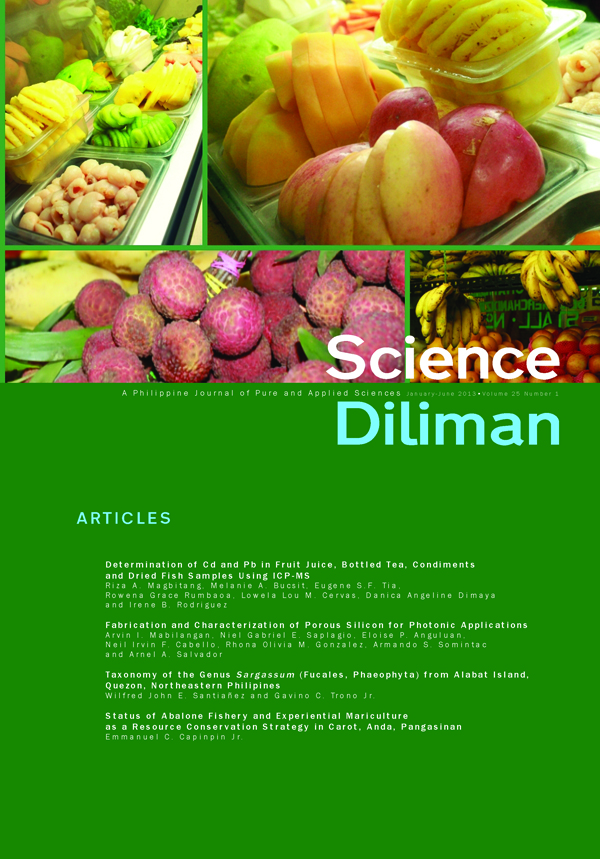Status of Abalone Fishery and Experiential Mariculture as a Resource Conservation Strategy in Carot, Anda, Pangasinan
Abstract
The study describes the abalone f ishery in Carot, Anda, Pangasinan to develop mariculture and to reseed a part of the harvest as a resource conservation strategy. The abalone fishery of Anda is artisanal or smallscale, typified by fishers gleaning or free-diving on shallow rocky areas which are the typical habitat of abalone. Low densities of 1.67 to 8 individuals per 250 m2 were observed. Local fishers have knowledge of productive fishing areas. Hence, cage culture of abalone in these areas could be a viable resource conservation strategy as they serve as reproductive reserves to supply larvae for continued productivity of the fishing grounds. Abalone mariculture following the Farmer Field School (FFS) concept was explored to address both resource management and economic needs. As a resource enhancement activity, mariculture guarantees that cultured abalone are allowed to grow to maturity before harvested, while some are retained to restock a marine sanctuary. Since mariculture makes possible the aggregation of individuals, the probability that fertilization would take place is increased. As supplemental source of livelihood, abalone is a high-value commodity and its culture can help augment the income of f ishers. Small abalone (3-4 cm) can be cultured further for 3-4 months to increase their size and weight. Mariculture should be done from November to May to avoid the rainy season and improve survivorship. The experiential activity was successful because it became a means for the fishers to experience resource management. Under the FFS, the researcher became a facilitator and mentored the cooperators in learning from their experience. The lessons sharpened the f ishers’ skills in observation, problem-solving, decision-making, and critical thinking. This enabled them to gain an appreciation of their resource.
Keywords: Abalone fishery, mariculture, Farmer Field School, conservation, resource management, experiential activity



